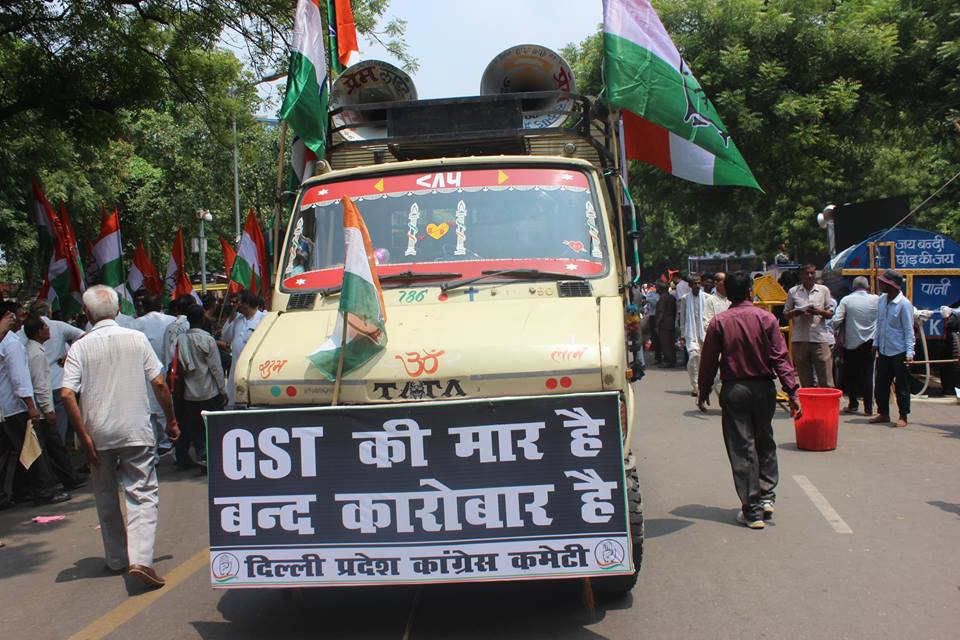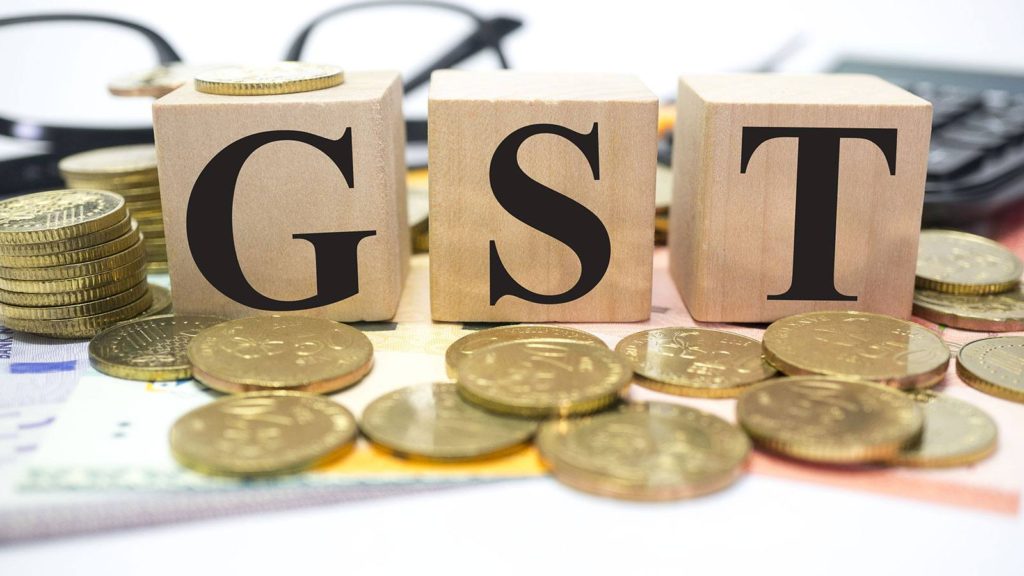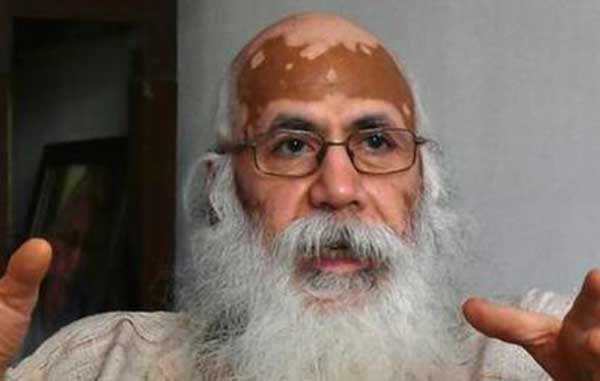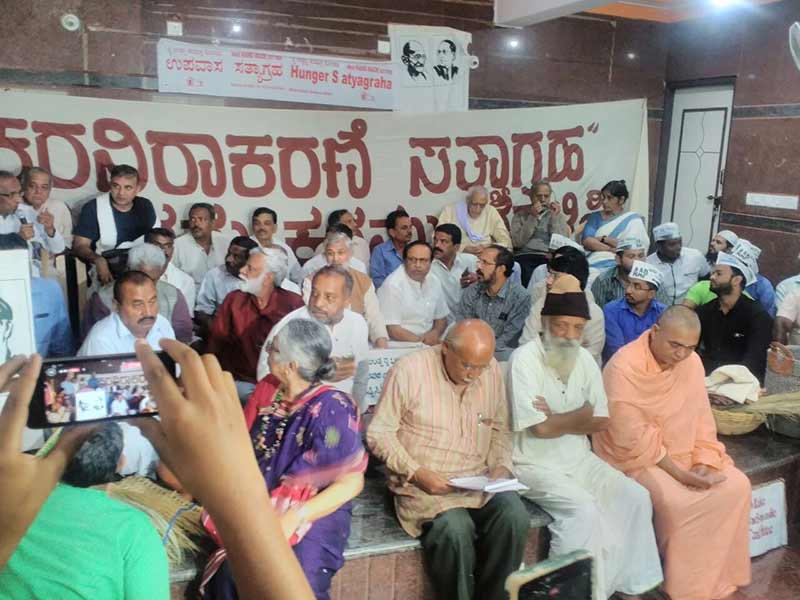
Last week, the government stated that states and union territories have been paid Rs 52,077 crore since July 2017 to compensate them for the shortfall in their tax revenue. After the last goods and services tax (GST) council meeting in July, it was reported that several states and union territories have reported shortfall in revenue of up to 43%.
Given this background, should the GST council have announced cuts in tax rates on several items? Reports suggest that the bureaucracy was unhappy with this decision since it could lead to an increase in the fiscal deficit. This is an election year, so, there will be pressures for additional expenditures which would lead to a widening of the deficit unless more resources are garnered. The finance ministers of Kerala and Punjab criticised the manner in which these decisions were taken in the GST Council and argued that federalism is being dented.
Prime Minister Narendra Modi, addressing the nation in his ‘Mann ki Baat’ in June, had hailed GST as a “celebration of honesty”. He said, “Everything is technologically processed so there is no scope for irregularities in taxation, as it used to be prior to the launch of GST.”
The moot point is: are revenues from GST more buoyant than earlier?
In all, 1.1 crore businesses are registered under GST – initially only half of them filed returns and paid tax. The number has risen to 70% but the tax collection has hardly increased. After crossing Rs 1 lakh crore of collection in April 2017 (due to year-end factors) it was Rs 95,610 crore in June 2018. But refunds are also pending so this figure may not be very different from the earlier monthly figures in 2017-18.
The finance minister had earlier announced that 5% of the businesses pay 95% of the tax. So, mere filing of more returns does not necessarily translate into more tax payment.
Honesty implies that the black economy is declining. BJP, during its election campaign in 2014, had promised that it would be able to curb the black economy quickly. The government launched demonetisation hoping to eliminate the black economy. But with all the old notes coming back to the RBI, that proved to be futile.
Can it promote honesty?
Demonetisation is a one-shot measure which can’t stop the process of black income generation. GST, in contrast, can potentially check this process. But will it?
Businesses generate black incomes via under and over invoicing of their sales and purchases. A trader selling 100 yards of cloth at Rs 10 per yard may declare only 95 yards sold at Rs 9.5 per yard. A sale of Rs 1,000 is shown as Rs 902.50 via under invoicing. Black income of Rs 97.50 is generated. To produce this textile, the producer may have bought cotton worth Rs 300 but declared it as Rs 350 via over invoicing and generated a black income of Rs 50.
He may have employed two workers and paid them Rs 20 each but may declare that he had employed three people and paid them Rs 25 each. This is muster roll fudging and another black income of Rs 35 accrues. He also over invoices overheads, like, transportation, entertainment and so on. Thus, 20% of the revenue becomes black income while the white income, the declared profit becomes negligible.
There is a catch. If person A buys from person B (whether raw material cotton or the finished cloth), then A would want to show a higher cost while B would want to show a lower revenue. This is feasible only if there are two books of accounts and it will escape detection if the tax authorities cannot match the invoices.
Earlier, without computerisation of accounts of all businesses, the tax authorities could not match the billions of invoices generated monthly by businesses. GST and computerisation changes this by enabling the matching the invoices of sellers and buyers. Both have to file returns on the GST network (GSTN). Each business has to register and is allotted a number (GSTIN) and all their invoices carry this number so that they can be cross checked. Since, theoretically, all transactions from raw material to the final product/service are tracked this is feasible in principle.
So, theoretically, due to computerisation, mis-invoicing is not possible and black incomes cannot be generated by businesses in legal activities. Of course, illegal activities like producing spurious drugs, adulterating food and smuggling can continue to generate black incomes.
However, what if no bill is issued and transactions remain outside the GST network from beginning to end? Cases of fake billing to claim input credit have been surfacing with regularity. Various exemptions granted under GST make this easy. The exemptions were necessitated by the need to serve multiple goals such as keeping essential goods cheap by not taxing them, or leaving small businesses out of the GST network so as not to adversely impact them. These exemptions and multiplicity of tax rates has made GST complex.
Complexity in rules enables black incomes to be generated. Officials scrutinising the accounts of a business are unable to catch manipulation of complex rules in the short time they have. That is why taxation should be simple, which is possible if it does not try to achieve multiple goals. GST has become complex because of its faulty design and the massive data requirements.
Black incomes are also generated by misclassification of goods. Perfectly fine chemicals may be shown as scrap sold at throw away prices. Ceramic tiles may be declared as damaged and sold at a discount. Further, multiplicity of tax rates enables businesses to misclassify goods and services and evade tax. Professional fees can be under invoiced since they have few inputs. Doctors seeing 25 patients may claim that they have seen 20 patients.
The e-way bill introduced to track movement of goods and check black income generation has also added to the complexity. Scrutiny of the content of the vehicle is required and this has encouraged the reappearance of the inspector raj. Without checking, misclassification becomes easy. Under GST, trucks can be stopped for checking anywhere and not just at the state borders. The police seem to be doing this and there are reports of extortion of money.
Changes in laws often lead to problems and GST is no different. Crooked businesses have to develop new ways of bypassing the new laws. For example, in 1982, when a law was introduced in Mumbai to acquire under-valued flats, transactions stopped. But, within 18 months, they revived and exceeded the old level because a way was found of circumventing the new law.
Reports of evasion of GST are slowly growing, implying that the process of discovery is on.
GST cannot check the process of black income generation in spite of computerisation; its form is changing. The need is to transform the human element but then GST would not be needed to generate `honesty’ and tackle the black economy.
Arun Kumar is Malcolm S. Adiseshiah Chair Professor, Institute of Social Sciences and author of The Black Economy in India, Penguin (India).
Originally published in The Wire















































